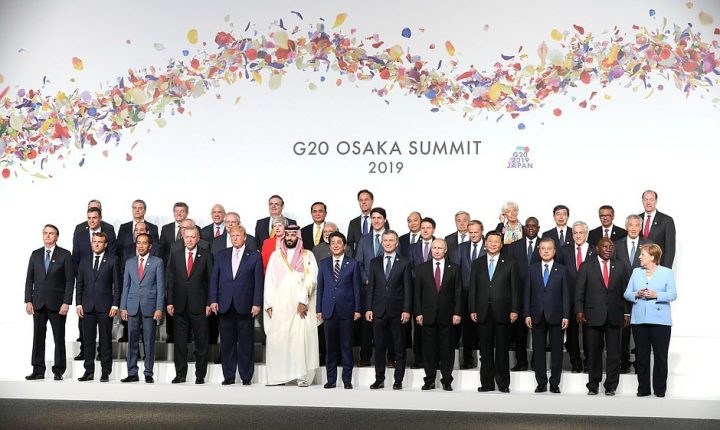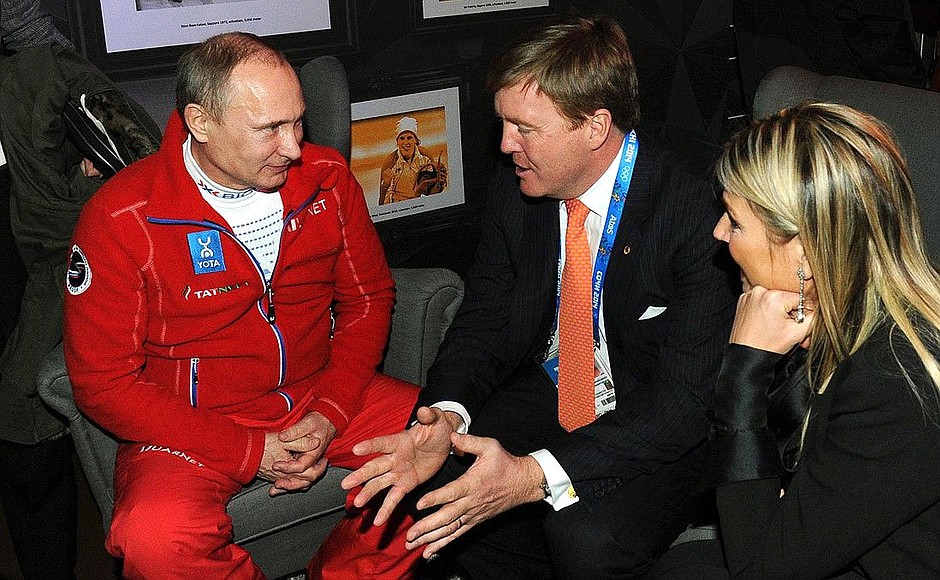The importance of a comprehensive lobby - Why you need to speak to everyone
September 13, 2019

Eli Schim van der Loeff | Senior Consultant Public Affairs
September 13, 2019

Queen Máxima recently spoke to the Saudi Crown Prince Bin Salman about the economic position of women in Saudi Arabia. This was controversial, as the international community is holding the Crown Prince responsible for the murder of journalist Jamal Khashoggi. A wave of criticism from a United Nations rapporteur and members of Parliament came to the Queen’s attention, as they felt that the talk by Máxima ignored the alleged actions of Bin Salman. However, is it right to exclude people from the outset who could have an impact on the public good? In other words, does the means justify the end? And specifically: what exactly is the situation in the world of public affairs?
Saved by horse politics
Of course, the alleged actions of Bin Salman are by no means comparable to those of any Member of Parliament. But experience shows that organizations that want to argue their case in The Hague sometimes have trouble talking to parties whose ideas are wholly opposed to the ideals of these organizations.
A wisdom of political lobbying, however, is: majority rules. In both the Senate and the House of Representatives, proposals are adopted if at least half plus one vote in favour. In various discussions, it may be worthwhile to talk to everyone. An extra argument for opting for a comprehensive lobby is the changing nature of politics. Today’s coalition is not necessarily tomorrow’s coalition. Before the elections, few people expected that the relatively small Christian Union would become a coalition partner in Rutte III. This tells us that investing in the opposition and the smaller parties, even if you don’t need them strictly to determine the majority, is good politics. At the beginning of 2018, Pia Dijkstra’s Donor Act (D66 or progressive democrats) – whereby every Dutch citizen is automatically registered as a donor unless explicitly changed- was adopted in the Senate by 38 votes to 36. The same law was passed by the Lower House with great difficulty. Similarly, in 1901 the former Member of Parliament, Baron Schimmelpenninck van der Oye, fell off his horse preventing him from voting against the draft Compulsory Education Act. In the case of the Pia Dijkstra’s Donor Act, a member of Parliament from the Party for the Animals missed his train keeping him from voting. In both cases this meant that the laws were adopted rather than rejected.
If it doesn’t, it doesn’t hurt
On the basis of the above cases, you could say that you should speak to everyone and not exclude any parties. However, this is not always the case. For example, you must prevent your well-intentioned conversation from providing a Member of Parliament with the ammunition to dismantle your argumentation, during an important debate.
To you, Vladi!

In the case of Queen Máxima, it is also questionable whether the conversation with Bin Salman has jeopardized her, or her function. The question whether the role of Máxima as a special advocate of the United Nations is compatible with her role as Queen also arose. Despite the fact that Máxima spoke with the Crown Prince on behalf of the United Nations, it is doubtful whether you can separate her as an individual and her function as Queen of the Netherlands. Minister Blok of Foreign Affairs defended Queen Máxima and rejected the criticism by stating that visiting such officials is a vital part of the work. Máxima would no longer be able to fulfil her United Nations role if she were to listen to criticism like this. And there is something to be said about this. With (world) leaders like Putin, Trump, Orban and Boris Johnson there will be enough people questioning when Máxima, or King Willem-Alexander are too friendly with them. This was also clear from the accusations that the royal couple received after they raised their glasses amicably with Putin during the Olympic Games.
Even if it’s just for Niccolò…
The conclusion is actually a bit boring. Whether or not to enter into a conversation with someone with conflicting norms and values depends on the situation. When there is a low risk and a high expected reward, the choice is obvious. Nevertheless, I would like to argue in favour of a little more courage. Don’t close the door immediately. A conversation can have many unexpected and (in)direct positive consequences. Be creative, look for similarities and start the conversation. If only to please the spiritual father of lobbyists, Niccolò Machiavelli; keep your friends close, but your enemies closer.